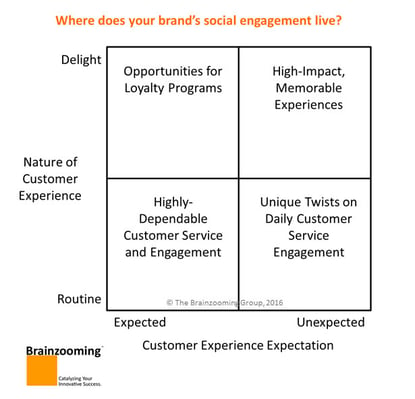We designed and facilitated an online focus group exploring how different generations’ expectations play out in the workplace. We focused specifically on what makes each generation feel heard and included. With eighty participants contributing perspectives, we had plentiful input to analyze as we identified themes.
After completing the client report and an executive newsletter article focused on the learnings, there’s still something left to address. This topic is particularly close to my heart; I’ve been trying to combat falling into this phenomenon for years.
Each Generation Wants the Rules to Make Them Shine Brightest

One theme emerged from the generation-specific comments that reinforces a human truism: we ALL want the situations that we’re in to favor our strengths and downplay our weaknesses.
Within the Blast! online focus group results, the generational preferences were clear and understandable. Each generation, when it comes to what they want and are expected to contribute, has a specific formula for what should be considered or not:
- Gen Z team members want to be heard for their opinions and considered as peers, irrespective of experience
- Millennials expect to be sought out for their perspectives and expertise, because they have credibility in both areas
- Senior workers want their decades of experience to outweigh any recent (even decades-long) gaps in actually knowing and understanding how things work now
All of these preferences make perfect sense, especially if you are in that particular generation. Each person wants a meaningful seat at their organization’s important table with an admission price that they can easily pay and / or satisfy.
Experience versus Expertise – The Senior Workers Dilemma
As somebody who has multiple decades in the workforce, both corporately and in the entrepreneurial world, I’ve repeatedly faced the question of resting on my laurels (i.e., experience) versus learning new things and skills (in other words, recent expertise).
For me, the answer is always easy: I want to stay as new and fresh as I can through building recent expertise.
Choosing the strategy of prioritizing new expertise throughout your career to complement your growing experience implies placing tremendous value on:
- Exposing yourself to new things all the time (even if you are doing it in focused areas).
- Learning as much as you can about the new things.
- Connecting the new information you learn to other models and information that you already know and that is still relevant.
- Diving in, even if beyond visibility to your peers, to experiment with new things.
- Mixing your experience with new learnings to gain a unique advantage that no other generation can claim.
Here’s one caution: When you speak from personal experience, DO NOT talk to anyone about how you are thinking about the new thing based on what happened in 1992.
With a decade-plus of experience, you don’t have to cite every source for your perspectives. Simply be (appear) smart and stop talking about where and when your experience originates. Treat your knowledge like an opinion that someone with less experience would offer; they’d share an opinion simply because it’s what they think.
The Hard Line According to Mike
Unless you are so far into your career that the end is less than one year away, my strong recommendation is to keep growing, learning, and contributing through recent expertise. There are enough external forces potentially making you irrelevant in your career. Don’t let your own complacency and change resistance be the factors that prematurely end your career. Mike Brown



